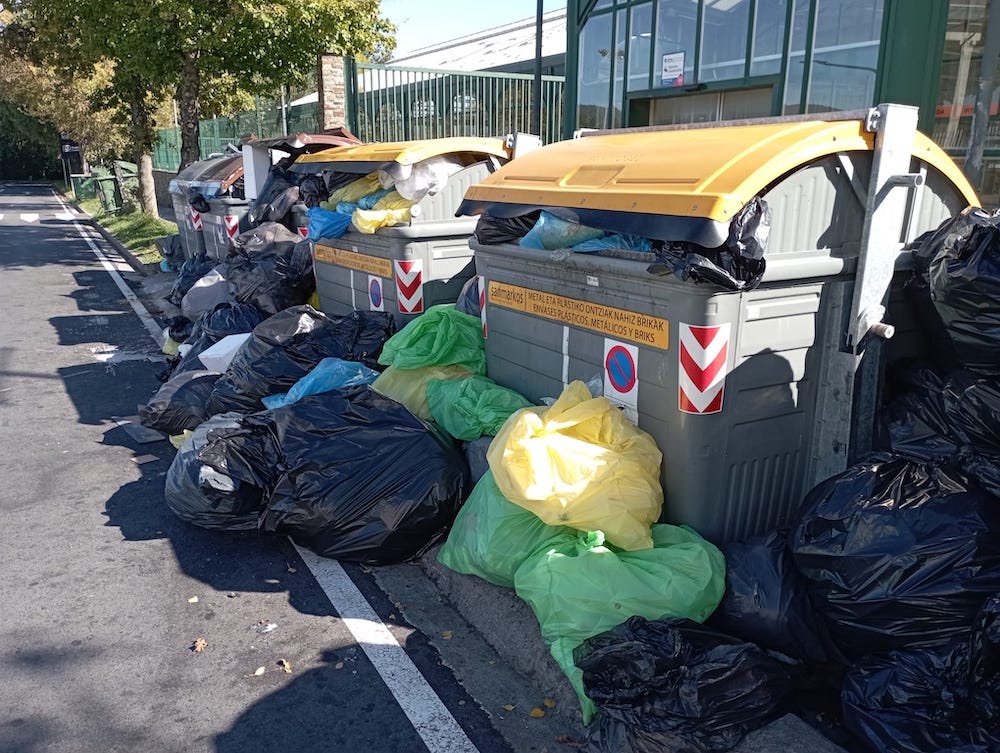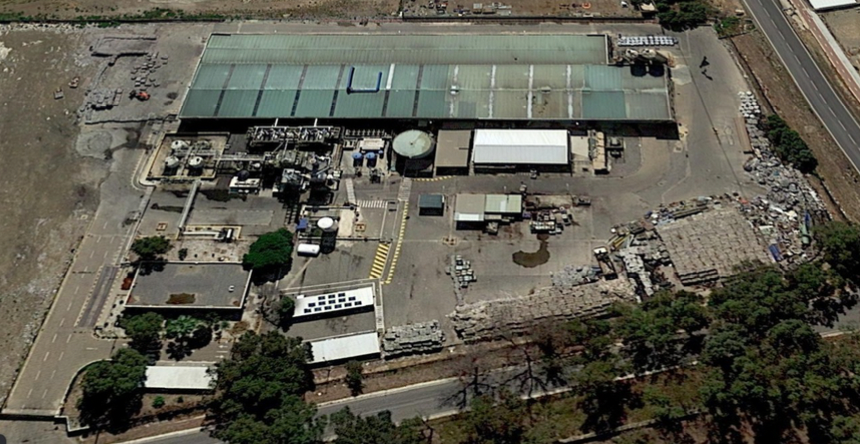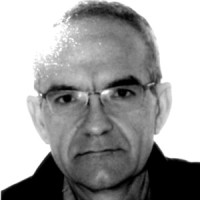Composting of organic waste generated in the municipality begins in Usurbil
- The initiative is the result of the collaboration between the City Hall and the Behemendi Association. Part of the organic residue generated in the municipality has started to compost in the Lartzandieta farmhouse.

Domestic composting has been created for the management of organic waste generated in Usurbil in the municipality itself. The pilot project was launched in December this year and has been developed in three phases. At the moment, the compost is being prepared in the Lartzandieta dwelling in Txokoalde, and the type of compost they have obtained will soon be known.
According to the explanations offered by the Mayor of Usurbil, Agurtzane Solabarrieta, the composting project is the next step in the long journey made by the City Hall in waste management, and aims to extend it to other villages. It is a continuation of the road started in 2009 with the collection of waste door-to-door in the municipality, a step that has been carried out in collaboration with the rural development association Behemendi.
As explained by the environmental and agricultural technician of the City of Usurbil, Ibon Goikoetxea, on the one hand, the bioresidue or organic residue collected in Usurbil and on the other hand, the dwelling Lartzandieta. In his view, the Lartzandia plant is small. In fact, between 700 and 800 tonnes of bio-waste are collected each year in Usurbil, of which 48 are to be composted in Lartzaneta.
Goikoetxea has also explained how caserío compost is done. “The process is done in a very simple way. The bioresidue is taken to the dwelling, where it is deposited on the structure that the baserritarra has left prepared. Mix the bioresidue and the structure with the aid of the tractor and the dump and leave it in a row for the composting process to begin.”
You will leave the queue closed and in four or five months you will get the right compost for the farmer in your house. “During this time, several jobs have to be done to ensure that the process is on the right track: to take temperatures, to control humidity, to mix everything from time to time…”. Goikoetxea also pointed out that the farmer not only puts manpower, but also that manure derived from the growing of chickens is used as a composting vertebrator.
Boosting agricultural activity
One of the objectives of Behemendi is to create and organize services for rural areas, in order to meet the needs of the people living in those areas, as explained by Mikel Zendoia member of the association: “We believe that rural composting is fully in line with this objective, as it is a complement to the daily tasks of farmers, and it drives and strengthens their activity.”
The farmer Koldo Huegun of Lartzandieta, who has set up rural composting, agrees with Zendoia: “We have seen that this project of composting organic matter in the street and the activity of the farmhouse are perfectly compatible.” Huegun, inside the Lartzandieta farmhouse, has a Bordatxuri farm dedicated to the breeding of chickens, including Lumagorri. Now combine this work with that of rural composting.
The City Hall of Donostia-San Sebastián announced at last Thursday’s plenary session that it will increase the waste rate by 26.5% from January 2025, claiming that Waste Law 7/2022 obliges this. Eguzki, for its part, has denounced that the law only applies in terms of costs,... [+]
Recently, the UPV/EHU organised a series of summer courses to address the issue of climate change. The Environment Minister, Asensio, took advantage of the courses to highlight the incinerator’s positive contribution to climate change, which is surprising, since for every tonne... [+]






















